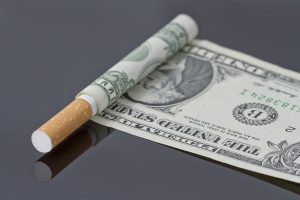 Despite being a state with relatively lower taxes, there are several notable exceptions to Utah’s “less is more” method of taxation. These exceptions mainly come in the form of consumption taxes, most of which are luxury taxes. Although Utah has a state income tax, a property tax, and a general sales tax, there is a wide array of different products that the state also levies taxes on.
Despite being a state with relatively lower taxes, there are several notable exceptions to Utah’s “less is more” method of taxation. These exceptions mainly come in the form of consumption taxes, most of which are luxury taxes. Although Utah has a state income tax, a property tax, and a general sales tax, there is a wide array of different products that the state also levies taxes on.
Cigarette Tax
Every time you see someone smoking a cigarette in the state of Utah, know that they are paying quite a bit for that habit. Utah’s cigarette tax, meant to bring in extra state revenue and regulate the tobacco industry, doesn’t tax a base percentage of cigarette sales, but instead levies 3.475 cents per cigarette sold. For a standard pack of 20 cigarettes, this means that a tax of seventy cents is tacked onto each sale in Utah.
Alcohol Tax
Utah is known for being the state with the strictest alcohol regulations in the country. It’s “Zion Curtain” laws, as they have been called, have been accused of hurting tourism and restaurant industries. However, these regulations also come in the form of taxation. In Utah, all alcohol sales are accompanied with a 13% tax on the final transaction from the store to the hands of the customer. Utah also strictly monitors the sale of beer, relative to other states, and tacks on a $12.80 tax charge for each barrel that is produced in the state.
Gasoline Tax
While other types of consumption taxes in Utah tend to be luxury taxes, such as for cigarettes and alcohol, gasoline is more of a necessity for consumers to operate in the modern marketplace. Nonetheless, Utah imposes a 24.5 cent per gallon tax on gasoline. The gasoline tax is put in place to be a sort of “road use” tax. On the Federal level, gasoline taxes are put towards maintaining our nation’s roads. While this isn’t strictly the case in Utah, it is a formidable source of state revenue.
